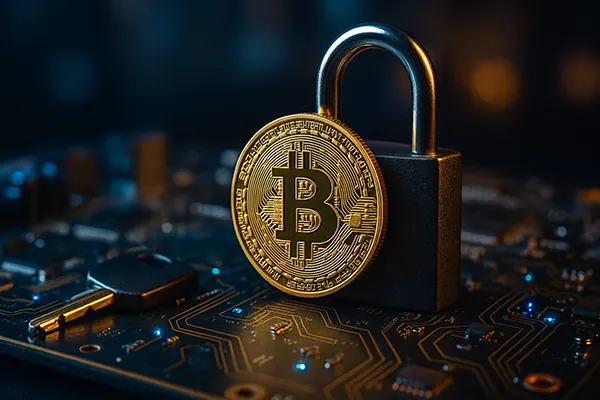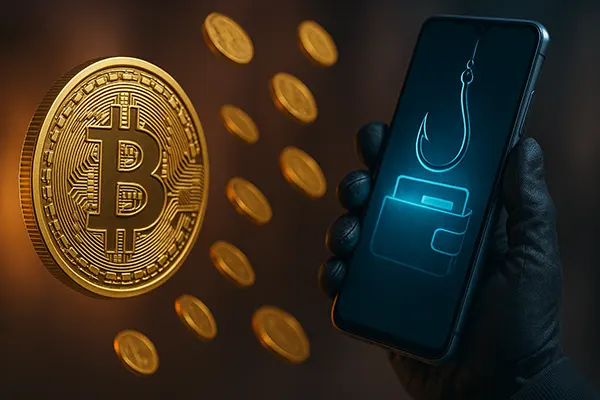
Cybersecurity in the Cryptocurrency World: How to Protect Your Assets
As the popularity of cryptocurrencies continues to rise, so does the number of cyber threats targeting digital assets. Ensuring the security of your cryptocurrency investments is essential to avoid falling victim to hacking attempts, phishing scams, and other malicious activities. In this article, we will explore the key measures you can take to protect your assets in the cryptocurrency world.
Understanding the Risks of Cryptocurrency Security
One of the biggest challenges in the cryptocurrency world is the ever-evolving nature of cyber threats. Cybercriminals are constantly developing new ways to exploit vulnerabilities, whether through hacking cryptocurrency exchanges, manipulating smart contracts, or conducting phishing attacks. Recognizing these risks is the first step toward safeguarding your digital assets.
Cryptocurrency exchanges are often prime targets for hackers due to the vast amount of digital funds they hold. High-profile breaches in the past have resulted in significant financial losses for users. Therefore, choosing a secure and reputable exchange is crucial for minimizing risks.
Another common threat comes from phishing attacks, where cybercriminals create fake websites or applications that mimic legitimate cryptocurrency platforms. Unsuspecting users may enter their credentials, giving hackers access to their wallets. Always verify the authenticity of any website or application before entering sensitive information.
Choosing the Right Wallet for Maximum Security
One of the most important decisions in securing your cryptocurrency is choosing the right wallet. Hardware wallets, such as Ledger and Trezor, are considered the safest option as they store your private keys offline, making them immune to online attacks. These wallets require a physical device to authorize transactions, providing an additional layer of security.
On the other hand, software wallets can be more convenient but are inherently more vulnerable to cyberattacks. To mitigate risks, always enable two-factor authentication (2FA) and keep your wallet software updated. Additionally, avoid using public Wi-Fi networks when accessing your wallet, as they can expose your data to interception.
For long-term storage, cold wallets are ideal as they are not connected to the internet, making them less susceptible to hacking. However, always ensure that your recovery phrase is stored securely and never shared with anyone.
Implementing Strong Authentication Methods
Authentication is a critical component of securing your cryptocurrency accounts. Relying solely on a password is not sufficient, as passwords can be easily compromised through various techniques such as brute force attacks or data leaks. Implementing multi-factor authentication (MFA) is essential for enhanced security.
The most commonly used method is two-factor authentication (2FA), which typically combines a password with a one-time code sent to a mobile device. For even greater security, consider using hardware-based 2FA solutions, such as YubiKey, which require physical confirmation.
Biometric authentication is becoming increasingly popular for cryptocurrency platforms, offering a more secure alternative to traditional passwords. Features such as fingerprint scanning or facial recognition make unauthorized access significantly more difficult.
Safeguarding Your Private Keys
Your private keys are the gateway to your cryptocurrency assets. If someone gains access to them, they can transfer your funds without your consent. Therefore, keeping your private keys secure is of utmost importance.
Never store private keys in plaintext or on devices connected to the internet. Use encrypted storage solutions, and consider backing up your keys offline to prevent loss in case of device failure. Additionally, avoid sharing your keys with anyone, regardless of how trustworthy they seem.
Consider using a multi-signature wallet that requires multiple approvals for transactions. This way, even if one key is compromised, your assets remain protected. Multi-signature setups are particularly useful for businesses or joint accounts.

Maintaining Vigilance Against Phishing and Social Engineering
Phishing and social engineering attacks are increasingly sophisticated, aiming to trick users into revealing sensitive information. Always verify the sender’s identity when receiving messages related to your cryptocurrency accounts, especially if they contain links or request personal details.
Be cautious when clicking on links or downloading attachments from unknown sources. Even messages appearing to come from official channels can be forged. Always cross-check contact information and never disclose private information through unofficial channels.
Educate yourself and your team about common phishing techniques and regularly update your security practices. Being aware of potential threats can significantly reduce the risk of falling victim to cyberattacks.
Staying Updated with the Latest Security Practices
The field of cybersecurity in the cryptocurrency world is constantly evolving. Following reputable sources for updates and best practices is crucial for maintaining the security of your assets. Regularly audit your security measures and adapt to new threats as they emerge.
Participate in security forums and communities to learn from other users’ experiences. Sharing knowledge and staying informed can help you stay one step ahead of cybercriminals.
Finally, consider professional security audits for your wallets and systems, especially if you manage large amounts of cryptocurrency. Expert guidance can help identify vulnerabilities and provide actionable insights for improvement.


